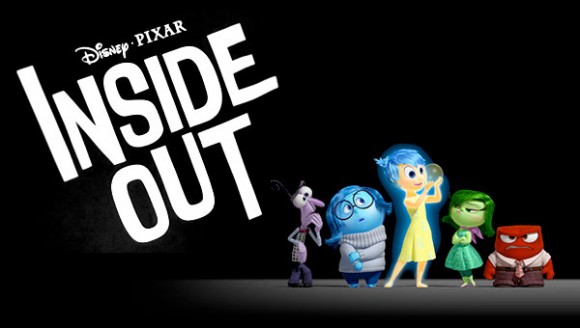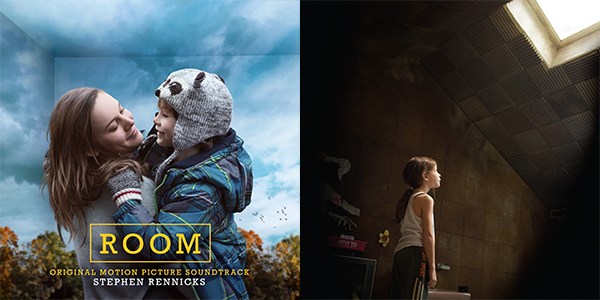It’s tiiiiiiime. This Sunday. The Oscars. Me. You guys. Bears. Dresses. Snarky opinions. It’s going to be AHHH-MAAAAAA-ZING. One of the coolest things about this Oscars? There are no frontrunners. Outside of Brie Larson and maybe Leo, anyone can win anything. But of course, the only categories anyone cares about when they watch these things is best original and adapted screenplay. And wouldn’t you know it, I’m here to handicap the contenders for you. To give you an idea of how I judge screenplays, I first look at the difficulty level of each script and then how well the writer(s) executed their take. If you are offended by strong opinions, please look away now. Cause some of these nominees have me riled up!
ORIGINAL SCREENPLAY CATEGORY
Bridge of Spies by Matt Charman and Joel and Ethan Coen
I’m going to try and be as polite as possible here. This script was a disaster. I don’t know why this movie is in the running for anything. It’s a weird concept, it has a bizarre structure, and it never understands what kind of movie it is. It feels like it was written in two weeks and they never went back for rewrites. From the little I’ve heard in interviews, it appears that Charman won the Hollywood lottery when Steven Spielberg fell in love with ONE SCENE in the script (the scene where they fill up the bathtub) and wanted to make it because of that bathtub scene. You can smell the scenes that the Coens worked on from a mile away (Tom Hanks being shaken down when he comes into East Berlin) as they’re the only scenes with any semblance of conflict or direction. This script should not be anywhere near an Oscar nomination.
Spotlight by Tom McCarthy and Josh Singer
Oh boy. Once again we find ourselves debating the most average-ly written screenplay of the year. Kudos to McCarthy and Singer for finding such a compelling real-life story, because that’s the only thing this movie has going for it. Once you look underneath the hood, you see zero attempt to create any drama or conflict (why isn’t the church going after the paper harder??) and even less of an attempt to explore the characters – you know, the people we’re supposed to feel attached to so that we care whether they succeed or fail!?? Every ounce of care the viewer has for this story has to do with the real life element of it. Zero has to do with the characters the writers painted for us, since they painted in no. 2 pencil. Case in point, does anybody know anything about the only female character in the movie other than that she was a reporter? Oh wait, we know she lives with a man. But they don’t even tell us who the man is! Is he her husband? Her brother? To tell you that would mean actually getting to know this woman. And I’m sorry, but that’s simply not allowed in Spotlight. If you’re judging this movie as an informercial for journalism, then yes, give it an Oscar. If you’re judging it as a screenplay, it shouldn’t even win the Nicholl, much less the most prestigious screenwriting award of the year. I’ve never seen a screenplay win the Oscar that didn’t have compelling characters. So if this does, it will be the first.
Inside Out by Pete Docter, Meg LeFauve and Josh Cooley
Inside Out is the opposite of Spotlight. It’s heavy on character development and tells one of the most complex stories I’ve ever seen put to paper. Nobody in this category is even in the same galaxy when it comes to degree of difficulty. Your main character isn’t the main character. You have to turn feelings into complex characters. You have to wrestle down endless gobs of exposition and somehow make them digestible, all while keeping the story moving. You have to create an entire universe that’s never been done before in any film. Inside Out is the only script in either category where the writers didn’t have a blueprint film they could work off of. They had to build the whole thing up from scratch. If these writers voting truly know what they’re talking about? Inside Out should win.
Ex Machina by Alex Garland
I’m so happy to see Ex Machina included on this list. It really was a great little script. It’s got two huge things hurting it though. It’s sci-fi (which never wins) and it’s too simple. The Academy doesn’t like to award simple. They want something that feels bigger and more complicated. Despite these types of scripts being harder to write than they look (keeping things interesting with three characters in one location for 90 minutes is really fucking hard to do!), this just isn’t the kind of script that gets an award.
Straight Outta Compton by Jonathan Herman, Andrea Berloff, S. Leigh Savidge and Alan Wenkus
I don’t know what’s going here. Why was this nominated? It’s a straight up music biopic that follows all the cliche beats. If Inside Out had no blueprints for its script, Straight Outta Compton had dozens. And it looks like they used them all. I suppose the one element of difficulty was the fact that they were following four protagonists instead of one. And that can be tricky. But everything else here felt broad and safe. Definitely not a contender.
MY PICK TO WIN?
ADAPTED SCREENPLAY CATEGORY
The Big Short by Adam McKay and Charles Randolph
I’m kicking myself for not seeing this movie yet. I read the book, which had a compelling premise – that a single man was so sure the housing market was going to crash that he invested all his money in it and earned billions – but lost track of the film because it came out during Force Awakens fever. It looks like Adam McKay took it in a much crazier direction than what was in the book, which, going off of everyone’s reactions, was a genius move. I have a feeling that this might have been my pick had I read the script or seen the film. But I haven’t so… it’s semi-disqualified from today’s voting. :(
Carol by Phyllis Nagy
What. The Fuck. Was. This Movie? Carol is one of those movies you walk out of and go, “Well I guess I’ll never get those two hours back again.” It was the worst kind of film experience. It wasn’t bad. It wasn’t good. It was a time-waster. Nothing memorable happened. It didn’t even embrace the one element that would’ve added drama – a lesbian relationship during a time where that was frowned upon. In this world, a lesbian relationship was no different from a heterosexual relationship. Which is fine. But if you’re going to treat it that way, you don’t have a movie! You have a travelogue of a May-December romance in which the roles could’ve been two women, two men, a man and a woman. Why did this movie need to be about two women in the 1950s?? It didn’t! So why even make the film???? I love Cate Blanchett as much as any film lover. I’d watch her act out my apartment lease. But is there anyone anywhere in the world who sees this and goes, “Man, how bout the writing in Carol? Wow.” No! Nobody! So why is this a nominee???
Brooklyn by Nick Hornby
I don’t even know what this movie is about but it looks as boring as its title. That’s all I have to say about that.
The Martian by Drew Goddard
The Martian is a screenplay that should be garnering more attention, but because it’s stuck in the dreaded “sci-fi” genre, academy members aren’t sure what to do with it. It’s like seeing a goth girl at a black tie event. She’s totally out of place but you still want to go up and talk to her. And this adaptation was a lot trickier than people realize. You have to take a book where the main source of communication occurs through a written diary discussing past events and dramatize that. You had to take a book that spent 75% of its time talking about science and math, then get rid of the majority of both while keeping the spirit of them in tact. And hardest of all, you had to take a story that lasted 2 years and make it move quickly onscreen. All while covering an extensive character list. The Martian may be a dark horse. I know that a lot of Academy members loved this movie but feel that they’re violating some code by voting for it. C’mon guys. Don’t be afraid!
Room by Emma Donoghue
Here’s what I like about Room as a screenplay. It’s a very simple story, yet it still contains some big challenges, the biggest of which is (spoiler alert), what do you do once the characters get out of the room with half the movie still left? I want you to take a second to realize how difficult that challenge is. The most compelling part of your screenplay – a woman and her son trapped in a room for years – is over by the midpoint. How do you even come close to keeping us engaged after that’s over? Emma does it via pure character development (are you listening Spotlight?) as the mom has a mental breakdown and the son tries to find his bearings in a world a million times bigger than the one he spent the first 7 years of his life in. And on top of this? Emma had to change the point of view to tell her story (the book was told exclusively through the eyes of the boy, if I remember correctly). I know this movie is being celebrated mainly for its wonderful performances. But I wouldn’t mind if it also got recognized for its screenplay.
MY PICK TO WIN?




